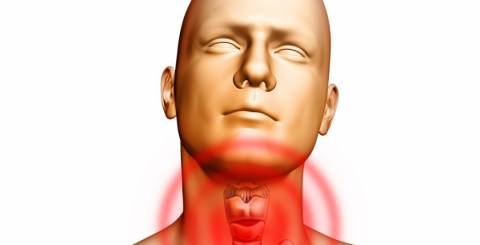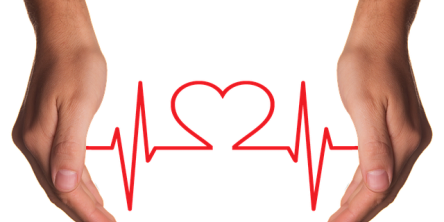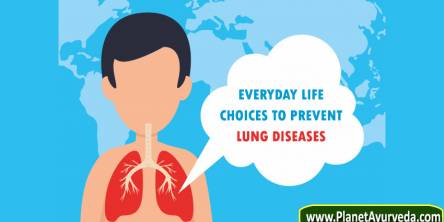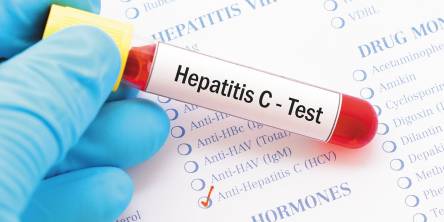About Thyroid Gland Disorders and Their Treatments


The thyroid gland is an endocrine gland located at the base of your neck and is seen in a butterfly shape. As shape indicates, thyroid gland has two lobes connected by a tissue called isthmus. Some people have two separate thyroid lobes since they don’t have isthmus. The thyroid gland is two inches long. The function of the thyroid gland is to release hormones into the bloodstreams by taking the iodine from the food you intake. These hormones help to control metabolism. Hence, thyroid hormones have the power in controlling vital body functions such as heart rate, breathing, body weight, menstrual cycles, Body temperature, muscle strength, cholesterol levels, CNS, and PNS. The two hormones of the thyroid gland are
• Triiodothyronine (T3)
• Thyroxine (T4)
The important thing is that the level of T3 and T4 should be normal, that they must not be high or low. The level of T3 and T4 is maintained by other two glands in the brain namely the hypothalamus and the pituitary gland The hypothalamus secretes TSH Releasing Hormone (TRH) that controls the pituitary gland to tell the thyroid gland to produce more or less of T3 and T4 by either increasing or decreasing the release of a hormone called thyroid stimulating hormone (TSH).
1. The pituitary gland secretes more TSH when T3 and T4 levels are low in the blood
2. The pituitary gland secretes less TSH If T3 and T4 levels are high
What happens when T3 and T4 levels are high in your body? (Hyperthyroidism)
• Irritability (moodiness)
• Sensitivity to high temperatures (Sweating)
• Hand trembling
• Missed or light menstrual periods
• Hair loss
• Anxiety
• Nervousness, hyperactivity
What happens when T3 and T4 levels are low in your body? (Hypothyroidism)
• Trouble sleeping
• Difficulty concentrating
• Dry skin and hair
• Sensitivity to cold temperature
• Joint and muscle pain
• Frequent, heavy periods
• Depression
• Tiredness and fatigue
Disorders of the thyroid gland
Thyroid disorders are the different conditions that affect the thyroid gland. There are different types of thyroid disorders that affect either its structure or function. Since the thyroid gland is controlled by the pituitary gland and hypothalamus, disorders of these tissues can also affect thyroid function and cause thyroid problems. The different kinds of thyroid disorders include
• Hypothyroidism
• Hyperthyroidism
• Goiter
• Thyroid nodules
• Thyroid cancer
1) Hypothyroidism
A condition in which thyroid gland produces less amount of thyroid hormone is called hypothyroidism. Hypothyroidism can cause problems within the thyroid gland, pituitary gland, or hypothalamus
Symptoms of Hypothyroidism
• Poor concentration
• Constipation
• Fatigue
• Feeling cold
• Fluid retention
• Depression
• Prolonged or excessive menstrual bleeding in women
• Muscle and joint aches
• Dry skin
causes of hypothyroidism
• Hashimoto's thyroiditis (an inflammation of the thyroid gland is called by an autoimmune condition called Hashimoto's thyroiditis)
• Thyroid hormone resistance
• Thyroiditis such as acute thyroiditis and postpartum thyroiditis
2) Hyperthyroidism
Excessive production of thyroid hormone leads to a stage called Hyperthyroidism.
Symptoms and signs of hyperthyroidism
• Fatigue
• Increase in bowel movements
• Concentration problems
• Sudden weight loss
• Increased sweating
• Intolerance for heat
• Fast heart rate
• Nervousness
• Tremor
Common causes of hyperthyroidism
• Graves' disease
• Toxic multinodular goiter
• Hot nodules
• Excessive iodine consumption
3) Goiter
A goiter is called for the enlargement of the thyroid gland. A goiter may be due to hypothyroidism, hyperthyroidism, or normal thyroid function.
4) Thyroid nodules
Nodules are lumps within the thyroid. Nodules may be due to benign cysts, benign tumors, or thyroid cancers. Nodules may be single or multiple. Nodules can vary in size. If the size of nodules is excessively large, this condition may cause compression of nearby structures.
5) Thyroid cancer
Thyroid cancer is now common among adult women (ages below 55) than men or youth. Depending upon the specific cell type where cancer affects, there are different kinds of thyroid cancers.
Thyroid Disease Diagnosis
A combination of two or more thyroid tests can detect even the slightest abnormality of thyroid function. Thyroid specialist doctors will check your medical history and will do a physical exam, and suggest for specialized tests are used to diagnose thyroid disorders.
If the level of T4 is low, this condition indicates either a disease thyroid gland or a nonfunctioning pituitary gland. In this stage, if the TSH secreted by the pituitary gland is high confirms that thyroid gland is responsible for having hypothyroidism. The most common reason for the failure of pituitary gland is tumor of the pituitary
• The measurement of thyroid hormones can be done by using a technique called radioimmunoassay (RIA)
• Blood Tests are typically done to measure levels of thyroid hormones and TSH.
• Imaging tests are suggested when thyroid nodules or thyroid enlargement are present
• Ultrasound technique is suggested to check the consistency of the tissue within the gland, cysts or calcifications
• Thyroid scans using radioactive iodine are suggested to check the function of thyroid nodules
• Fine needle aspiration and biopsy are also suggested for examination and diagnosis
Treatment for thyroid disorders
• Medications
• Radioactive ablation
• Surgery (Surgery is suggested for cancer and Graves' Disease )
Similar Articles
Clickbait articles. Wild conspiracies. Misheard conversations. All of these things can lead to misinformation. Misinformation can become incredibly dangerous. Not only does it cause fear, but it can influence decision-making. People have allowed lies to influence their healthcare and voting habits. Not only this, but it can create prejudices that can ruin lives.
Conditions like Parkinson's, essential tremor, and dystonia are on the rise, affecting people of all ages and backgrounds. From subtle tremors to major coordination issues, these disorders can greatly affect daily life. Understanding their causes, symptoms, and treatments helps us detect and manage them early, improving overall quality of life.
When it comes to personal hygiene, ears aren’t usually something people tend to worry about. You may give them a quick rinse while in the shower, and then not think twice about it, that is until they start bothering you. Ears are generally thought of as self-cleaning, as earwax tends to soften on its own and not build up.
Hardly anyone is ever prepared for death, even if it’s not unexpected. Unfortunately, most of the leading causes of death in Illinois and all over the United States are unexpected. On the other hand, most are also preventable. Here’s a look at the top five leading causes of death in Illinois.
Cancer is diagnosed every two minutes in the UK, a word that instills dread and evokes fear and worry. Treating cancer can often be a rollercoaster.
It's a good idea to discuss Crohn's disease with your doctor if you experience pain. Crohn's disease frequently causes pain, but there are ways to manage it.
The COVID19 vaccine supply chain has a decisive role to play in enabling efficient vaccination to people. But, the current supply chains are broken and diminished in many cases, posing challenges to effective vaccine distribution.
Lungs are usually taken for granted by us however they keep us well and alive. Most of us prioritize getting healthier and the health of lungs rarely crosses our minds. Now it’s the need of the time that we change it! The rate of lung diseases and respiratory ailments is much more in number than we assume.
Hepatitis is an inflammatory condition of the liver that can cause severe health problems if left untreated. There are different types of hepatitis, and each has its specific causes, symptoms, and treatment options.









